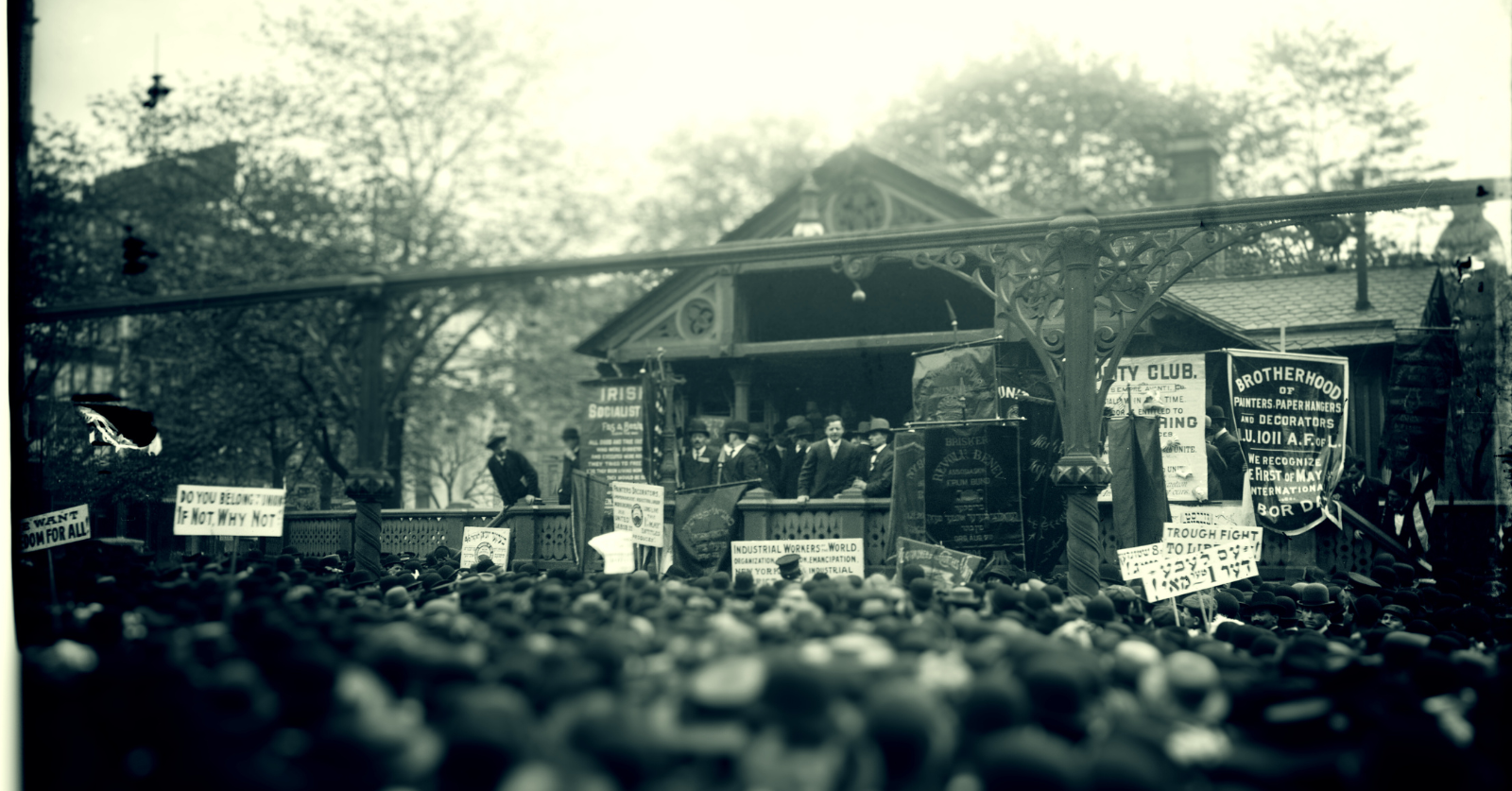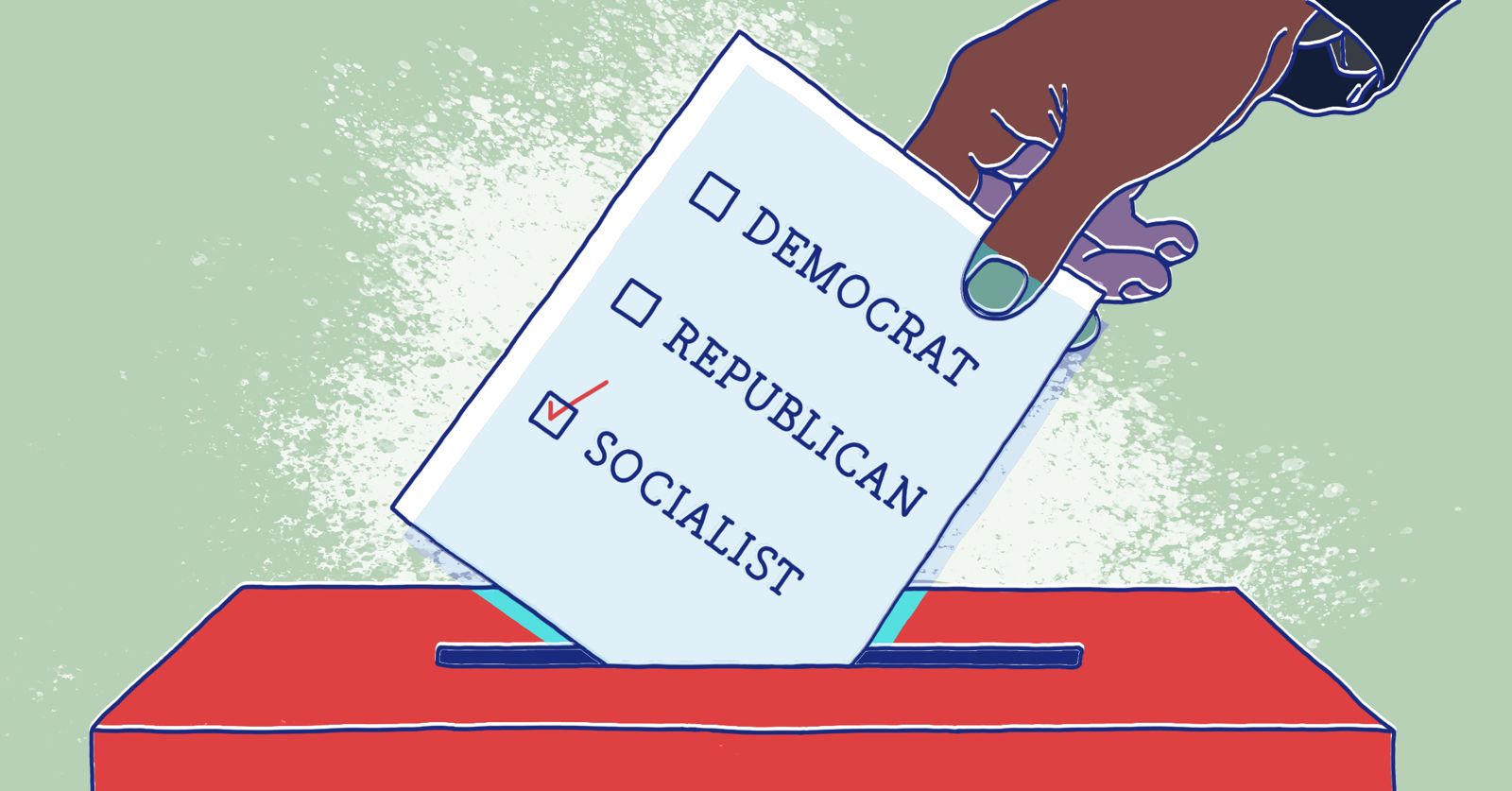For those new to the left or looking in from the outside, it might be surprising that people who claim to be “materialists” — adherents of the view that people’s economic interests are very important for determining their politics — and who are focused on organizing also seem to care so much about ideas. Indeed, it’s not uncommon for some left-wing activists to insist that they’re the “real materialists” who want to do the work and organize people around their material interests, and to vent their frustration that others on the left want to take more time to read and discuss and think through arguments.
But the left’s commitment to materialist analysis and effective organizing should not be counterposed to a rich culture of debate, study, and sharpening our ideas. In fact, socialists have good reason to care more about ideas and developing a shared understanding of the world than liberals and conservatives.
The reason: we don’t just want to elect certain leaders or pass certain laws. What separates socialists from liberals and progressives in particular is that we insist on a much fuller vision of democracy — that everyone should have an equal say in the major decisions affecting their lives, including at the level of their individual workplaces and at the level of how the broader economy is organized. That means a world where ordinary people deliberate collectively about how their factories and schools and hospitals are run, how their cities are designed, and what our social priorities are (e.g., how we allocate time and resources between artistic creation vs. technological development vs. leisure time and so on).
But building such a society will require more than convincing people to vote for our candidates or pass our policies. It means 1) organizing with our coworkers to run our workplaces and the broader society democratically. And because we think that those who currently run the economy — the capitalist class — will not give up their power willingly, it means 2) organizing workers to fight for control of their workplaces and the political system through collective, disruptive action.
But 1 and 2 together involve persuading millions of working people of the need for their personal involvement in fighting for, building, and participating in various institutions of democratic decision-making, within individual stores and factories and offices and political parties and government institutions. And at least as important, people need to be equipped with lessons learned from history and international experiences about how to organize, what to do, how to lead, and how to fight.
This task goes far beyond the usual pitch made in election campaigns, or even the approach that many unionists take to workplace organizing (wherein workers are supposed to wait patiently for instructions on what to do from dedicated staff or union leaders). Instead, it requires moving people to think of themselves as agents of history, as being capable of collectively running the show and empowered to take the initiative to make changes themselves, and then equipping them with the tactics and experiences they’ll draw on to make millions of small and big decisions in the course of struggles.
That is — for the many regular people who are demoralized or resigned or otherwise “checked out” — a fundamental change in consciousness. That’s what socialists are trying to bring about, as much as we’re trying to win elections or pass certain reforms. In fact, it’s one of the biggest reasons why we’re trying to do those things — because we see them as means (or at least aids) to getting people to think and act differently in their daily lives. And that need to effect a fundamental change in consciousness is a large part of why speaking to and organizing with coworkers on the shop floor, or with neighbors in our apartment buildings, or with the many ordinary people protesting genocide in Gaza, is essential.
Republished from Left Notes




